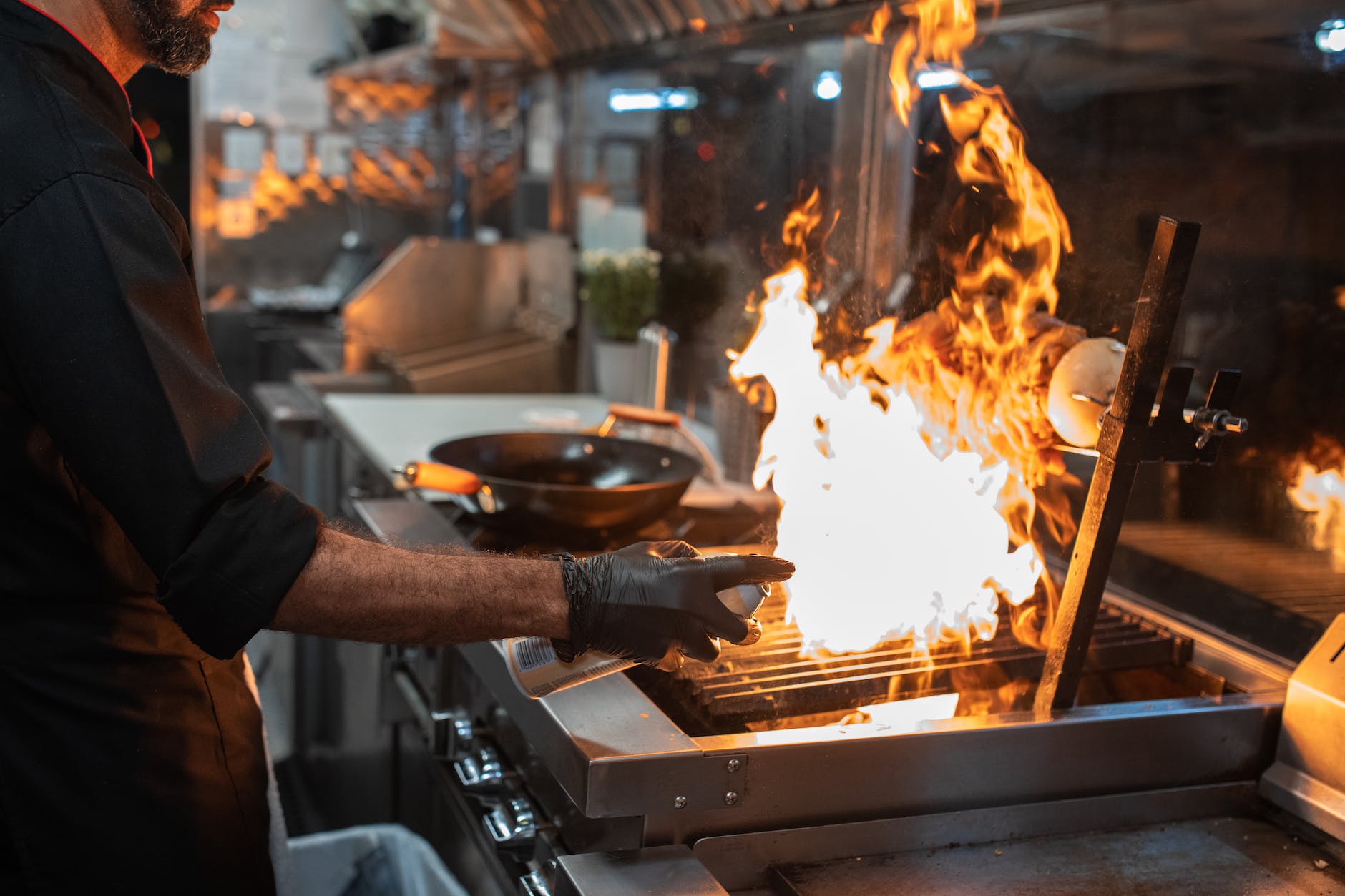
Fire Prevention in the Kitchen: Mastering Safe Cooking Practices
Introduction
The kitchen, often referred to as the heart of the home, is a bustling space where culinary delights come to life. However, it’s also a common area for fire hazards. Understanding and implementing safe cooking practices is essential to prevent kitchen fires and ensure the well-being of everyone in the household. This article delves into the key aspects of fire prevention in the kitchen, offering practical tips for safe cooking.
Recognizing Common Kitchen Fire Hazards
- Unattended Cooking
- Leading Cause: Leaving cooking appliances unattended is a primary cause of kitchen fires.
- Prevention Tip: Stay in the kitchen while cooking and set timers as reminders.
- Grease Buildup
- Accumulation Risk: Grease buildup on stovetops and in ovens can lead to flare-ups.
- Prevention Tip: Regularly clean cooking surfaces and appliances to prevent grease accumulation.
- Faulty Appliances
- Electrical Issues: Malfunctioning or faulty appliances can pose a fire risk.
- Prevention Tip: Regularly inspect and maintain kitchen appliances, and promptly address any issues.
Safe Cooking Practices for Fire Prevention
- Stay Attentive
- Never Leave Unattended: Avoid leaving the kitchen when cooking, especially when using stovetops, ovens, or grills.
- Timed Cooking: Use timers to remind you to check on food regularly.
- Keep Flammable Items Away
- Clear Workspace: Ensure the cooking area is free of flammable materials, such as paper towels, dishcloths, or wooden utensils.
- Secure Clothing: Roll up sleeves and avoid loose clothing that could come into contact with flames.
- Regular Appliance Maintenance
- Inspect Cords and Plugs: Check appliance cords and plugs for any signs of damage or wear.
- Replace Damaged Appliances: If an appliance shows signs of malfunction or damage, replace it promptly.
- Use Caution with Cooking Oil
- Monitor Heat: Pay close attention to the temperature of cooking oil to prevent overheating.
- Never Leave Unattended: Stay vigilant when using oil and never leave it unattended on high heat.
- Install a Smoke Detector
- Strategic Placement: Install smoke detectors in or near the kitchen for early detection of smoke or potential fires.
- Regular Testing: Test smoke detectors regularly and replace batteries as needed.
- Have a Fire Extinguisher
- Accessible Location: Keep a fire extinguisher in an easily accessible location in the kitchen.
- Know How to Use: Familiarize yourself with the proper use of a fire extinguisher.
Emergency Response in Case of a Kitchen Fire
- Stay Calm
- Avoid Panic: In the event of a small kitchen fire, stay calm and focused.
- Call for Help: If the fire is not quickly manageable, call emergency services.
- Use a Fire Extinguisher
- Remember PASS: Pull the pin, Aim at the base of the fire, Squeeze the handle, and Sweep from side to side.
- Back Away: Maintain a safe distance while using the extinguisher.
- Evacuate if Necessary
- Prioritize Safety: If the fire is spreading rapidly and cannot be controlled, prioritize evacuation.
- Have an Exit Plan: Plan and practice escape routes with all household members.
Conclusion
Preventing kitchen fires involves a combination of awareness, caution, and proactive measures. By incorporating safe cooking practices, staying vigilant, and being prepared for emergencies, individuals can create a secure kitchen environment. Remember, fire prevention is not only about reacting to potential hazards but also about adopting a proactive mindset to minimize risks in the first place.
Fire Hazards and Control Measures
What is the Life of a Fire Sprinkler?
Frequently Asked Questions (FAQs)
- What is a common cause of kitchen fires?
- Leaving cooking appliances unattended is a common cause of kitchen fires.
- How can I prevent grease buildup in the kitchen?
- Regularly clean cooking surfaces and appliances to prevent grease accumulation.
- What should I do in case of a small kitchen fire?
- Stay calm, use a fire extinguisher if appropriate, and call emergency services if the fire is not quickly manageable.
- Where should I install a smoke detector in the kitchen?
- Install smoke detectors in or near the kitchen for early detection of smoke or potential fires.
























